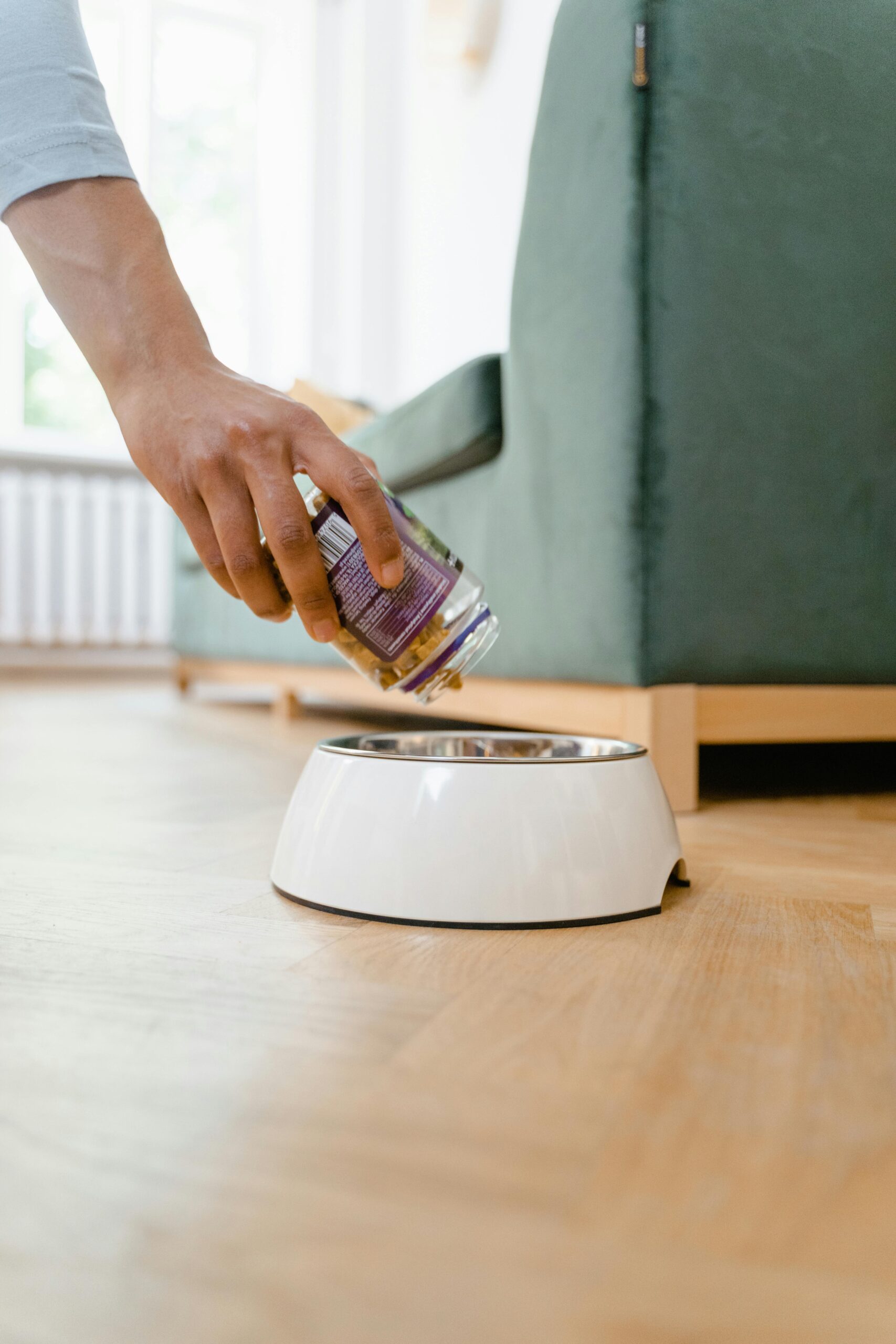In the event of a threatening storm, it’s crucial for pet owners to include their furry friends in their emergency preparedness plans. Pets are particularly vulnerable during natural disasters, and ensuring their safety requires thoughtful preparation and timely action. At Heritage Insurance, we prioritize the well-being of your entire family, including your pets. If you have never made an emergency preparedness plan for your family or pet it can be difficult to know where to start.
Emergency Kit
The very first thing you should do to prepare for an impending storm is create an emergency kit for your household. Your pet will need their own emergency kit, as their needs are different from those of your family’s. Ensure that the following items are included in your pet’s emergency kit:
For a detailed checklist of what to pack in your pet’s emergency kit see our Pet Checklist here. |
 |
Evacuation Plan
When you create an evacuation plan for your family, be sure to include your pet in that plan. Evacuations can be chaotic and stressful, but having a plan set in advance can help create a smoother process for both you and your pet. When creating your evacuation plan there are three important factors to consider.
- Pet-friendly shelters and hotels: It is important to keep in mind that not all emergency shelters and hotels accept animals. When creating your evacuation plan research hotels, shelters and boarding facilities along your evacuation route. Some facilities have more specific rules than others so it is important to ask questions that are relevant to your pet.
- Transportation: Each of your pets should have their own sturdy carrier. Acclimate your pet to their carrier in advance, so that when a storm does come they are comfortable and relaxed during evacuation.
- Family and friends: If possible, it may be better for your animal if they stay with a family member or friend whom they are comfortable with out of the path of the storm. Knowing your pet is comfortable will increase the likelihood of a smooth evacuation.
Secure Spaces
As a storm approaches, keep your pets indoors. Never leave them outside, as they can become easily frightened and run away or get injured by flying debris. It is also important to refrain from tying your pet up outdoors or leaving them alone at home when you evacuate. When bringing an animal into your home, you take responsibility for their well-being. Think of your animals as members of your family and consider they have emotions, just like we do. There are two things you can do to keep your pet’s anxiety at bay:
- Create a safe space: Locate a room in your home that is free from windows and has enough space for your pet’s crate or carrier. Your pet should be able to stay in this room throughout the storm, so you will want to include blankets, food, water, pee pads or litter boxes for your pet.
- Use calming aids: The use of calming aids can greatly assist in the anxiety levels of your pets. Some common calming aids for pets are pheromone diffusers, anxiety vests, and even blankets and bedding that contain their owner’s scent.
During the Storm
 Once the storm has arrived, you and your pet will want to stay together and informed at all times. You will also want to monitor your pet’s behavior as it can change just as quickly as the path of the storm. Just as your presence will keep your pet calm, their presence will also keep you calm. As you listen to local weather reports be prepared to pick up and evacuate if government officials execute an evacuation order. Don’t forget your pet’s emergency kit, carrier, and your calm demeanor when heading out of the path of the storm. When you stay calm, your pet is more likely to stay calm as well. Even if you have the calmest pet you will still want to monitor their behavior, as many pets can display unusual and out-of-character behaviors during a storm. Ensure that if your pet does display erratic or unusual behavior they cannot escape or injure themselves in their carrier during the storm.
Once the storm has arrived, you and your pet will want to stay together and informed at all times. You will also want to monitor your pet’s behavior as it can change just as quickly as the path of the storm. Just as your presence will keep your pet calm, their presence will also keep you calm. As you listen to local weather reports be prepared to pick up and evacuate if government officials execute an evacuation order. Don’t forget your pet’s emergency kit, carrier, and your calm demeanor when heading out of the path of the storm. When you stay calm, your pet is more likely to stay calm as well. Even if you have the calmest pet you will still want to monitor their behavior, as many pets can display unusual and out-of-character behaviors during a storm. Ensure that if your pet does display erratic or unusual behavior they cannot escape or injure themselves in their carrier during the storm.
After the Storm
After a hurricane or other major storm you will still want to remain cautious especially when it comes to your pets. First, you should inspect your home for any potential hazards such as broken glass and sharp debris. When you are sure that your home is structurally sound, inspect the area just outside your home. You will want to be on the look out for downed powerlines and displaced creatures such as snakes, and other small animals that can pose as a danger to your pet. Even if you are positive that there are no visible dangers that threaten your pet’s safety you should still remain vigilant and supervise your pet when allowing them outdoors. Next, you should check your pet for any injuries or signs of continued distress. You may want to contact your veterinarian if your pet is injured or in distress after the storm has passed. Finally, if you had to evacuate from your home or relocate due to damage update your pet’s information. If your pet is microchipped contact the company who manages their microchip to update your contact information and address.

At Heritage Insurance, we’re committed to helping you protect all members of your household. Proper preparation can significantly reduce the risk of danger to your pets during a hurricane, ensuring their safety and your piece of mind. Stay safe this hurricane season, and remember, preparation is key to safeguarding your home and your beloved pets.






